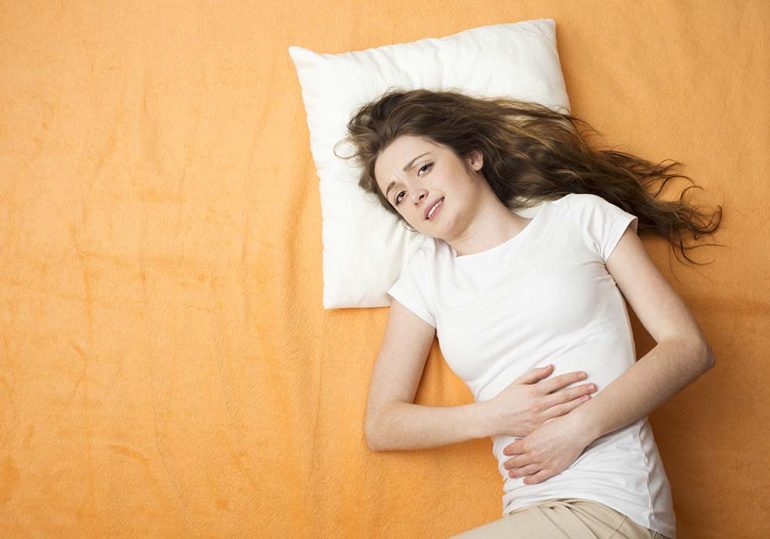

" Constipation may be the most obvious reason as to why you have a bloated stomach," notes Dr Akbar. Read up on which foods help reduce bloating, now.

She also notes that other foods which frequently induce a bout of the bloat are apples and avocados, so you might have to bump those down your list of favourite foods. "Even people who are not officially diagnosed as being 'gluten allergic' (coeliac disease) can often experience sensitivity to these foods and can experience constipation and bloating." But as a heads up, "the two most common forms of food that lead to bloating are dairy products and foods containing gluten," says Dr Akbar. Food allergies (or sensitivities)įood allergies, sensitives or intolerances can lead to bloating the problem is, it's just so damn hard to detect which foods are causing the problem. Usually, the bloating goes away when the excess fluid and blood is shed when the woman has her period," explains Dr Akbar. This can lead to bloating, which can become stronger as ovulation occurs and more fluids and blood build up. "In the early days of a women's cycle, oestrogen levels rise while the uterine lining thickens. But it can occur at any stage before, during, or after the menstrual cycle, and for some women it doesn't have an effect at all. " Premenstrual syndrome (PMS) can lead to a bloated stomach, as it makes you prone to constipation and fluid retention," notes Dr Akbar. This is why you get so grumpy when you're bloated."Cortisol can disturb our digestive system to cause things like bloating and constipation." It turns out not getting enough kip at night doesn't just make us grumpy the next day, but it can play havoc with our digestive systems, too."With lack of sleep, our bodies release a stress hormone called cortisol," says Dr Akbar. We're always told to drink our two litres daily but who knew it could ward off the bloat, too? 2. She goes on to explain that when your body attempts to counter-balance the effects of being dehydrated, it holds on to excess water. How? "Drinking lots of water can potentially reduce the likelihood of bloating because dehydration and electrolyte imbalances can halt digestion," explains Dr Akbar. Short answer: yes, dehydration can cause bloating.

#Bloated stomach and feeling sick and tired female how to#
Once you've discovered what it actually is that could be causing your bloating, make sure to read our handy guide to how to stop your bloating. Here, she explains the many reasons you may sometimes look like you're sporting a five-months-pregnant belly come the end of the day. So what is it that makes you bloat, and can things like dehydration actually cause bloating? To get the answer once and for all, we touched base with Dr Ayesha Akbar, consultant gastroenterologist at St Mark's Hospital and the St Mark's Institute for Bowel Disease. If you've ever tried wearing tight jeans or smashing a HIIT session while bloated, then you'll know what we mean. That's because it can actually be really painful, and prevent you from enjoying your normal day-to-day activities. Unexpected bloat occurring more frequently can make you feel seriously grumpy, frustrated and low. Whether you bloat around your time of the month, because of eating certain foods or as a physical response to stress, there can be a whole host of reasons as to why you're regularly feeling puffy. (2014, March 17) cancer.Bloating, for many, can be a right royal pain. Understanding bloating and distention.Abdominal bloating: A mysterious symptom /ibs/files/educational-gi-handouts/Abdominal%20Bloating.pdf (2013, August 29) my./symptoms/nausea/hic_nausea_and_vomiting.aspx Bloating, belching and intestinal gas: How to avoid them.You can learn more about how we ensure our content is accurate and current by reading our editorial policy. Healthline has strict sourcing guidelines and relies on peer-reviewed studies, academic research institutions, and medical associations. dumping syndrome (a condition that can occur after you’ve had abdominal surgery).symptomatic gallstones or infection of the gallbladder.inflammatory bowel disease like ulcerative colitis or Crohn’s disease.ileus, impairment of normal bowel motility.taking certain medications (such as antibiotics).pregnancy (especially in the first trimester).giardiasis (an infection from an intestinal parasite).Fortunately, they both usually resolve with time.Įxamples of conditions that can cause abdominal bloating and nausea include: What causes abdominal bloating and nausea?Ībdominal bloating and nausea commonly occur together.


 0 kommentar(er)
0 kommentar(er)
